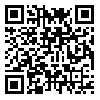Introduction & Objective: Knowledge transfer and in fact, the bridging of theory and practice is one of the main concerns of all academic disciplines. Getting prominent professional status is the thing that can be achieved by knowledge-based function, and of which would be called as successful discipline that it be able to transfer its theoretical paradigmatic claims into practice. Accordingly, the nursing educational discipline policy-makers would be designed an effective context-based educational planning by adopting viewpoints of the discipline’s agents.
Materials & Methods: Using grounded theory approach, in-depth individual interviews, and participant observation were undertaken with a purposive and theoretical sample of 29 participants to explore their perceptions regarding the theoretical knowledge transfer into practice. Data were analyzed using the Strauss and Corbin coding paradigm and constant comparative method.
Results: Four main themes emerging from this study included psycho-cognitive aspect of knowledge transfer, clinical behavior structure, paradigmatic paradoxical knowledge and practice, divergence in nursing organization. The reciprocal theory-practice/ practice-theory gap was determined as core variable based on frequency of occurrence and being reference to interconnect of all the themes in the data. Simultaneously, this core variable was assumed as basic social problem resulted from contemplation and behavior gap as basic psychological social process which in turn, inhibited the process of knowledge transfer into practice.
Conclusion: The knowledge transfer into practice could be achieved if the discipline considers the knowledge-based function related to all of these inferred themes. In other words, bridging the gap between theory and practice at all four pillar of nursing, that is, education, research, administration, and service is intellectual way of knowledge transfer into practice. Furthermore, this information indicates that nursing discipline in
| Rights and permissions | |
 |
This work is licensed under a Creative Commons Attribution-NonCommercial 4.0 International License. |


